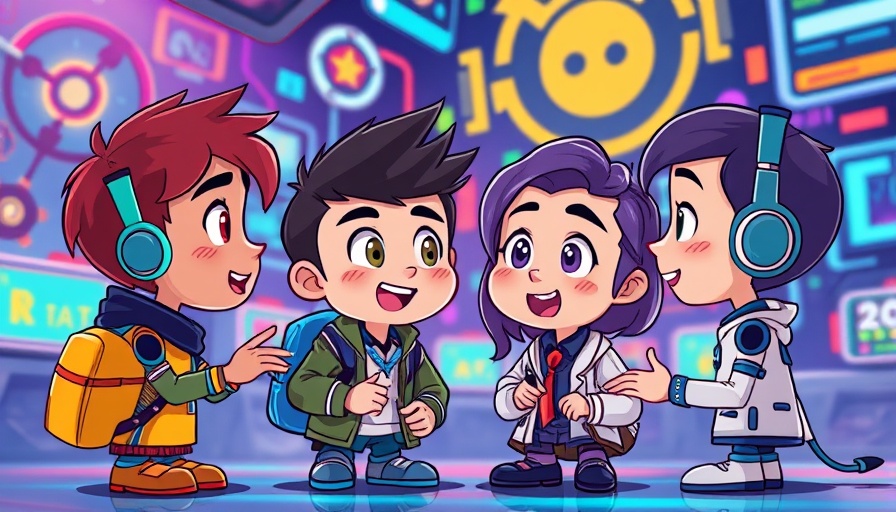
The Dawn of a New Era: Are Flying Cars Finally Here?
In the latest discourse surrounding innovative transportation solutions, the concept of flying cars is gaining unprecedented traction. A recent video titled Are Flying Cars Finally Here? highlights the landscape of this nascent industry, prompting a deeper analysis into the implications and realities of flying automobiles. As technology progresses, the dream of soaring above traffic and urban congestion might no longer be confined to science fiction.
In Are Flying Cars Finally Here?, the discussion dives into the groundbreaking advancements in personal aviation, exploring key insights that sparked deeper analysis on our end.
The Current State of Flying Car Technology
Flying cars, also referred to as vertical takeoff and landing (VTOL) vehicles, are currently being developed by various startups and established aerospace companies. Organizations like Joby Aviation and PAL-V are at the forefront, creating prototypes that are closer than ever to becoming commercially viable. These vehicles typically incorporate electric propulsion systems, enabling them to operate quietly and efficiently, with a lower carbon footprint compared to traditional aviation. This emerging technology promises to revolutionize for-hire air travel and personal transport, thereby reducing road congestion significantly.
Historical Context: The Evolution of Personal Aviation
The concept of personal air travel is not new; it stretches back to the early 20th century when inventors envisioned individual flying machines. However, technological limitations kept these ideas grounded. From helicopters to drones, advancements in aerodynamics and propulsion technology have paved the way for more sophisticated designs of flying cars. Understanding this historical context sheds light on how far we have come and the challenges that still lie ahead.
Social Implications: How Flying Cars Could Change Urban Living
Rethinking urban infrastructure is imperative if flying cars become commonplace. The potential for reduced traffic congestion and more efficient transportation networks could dramatically change the dynamics of city living. However, this advancement brings with it concerns such as air traffic regulation, safety standards, and equity in access to this technology. A future where wealthier individuals use flying cars to navigate cities fretting about congestion could lead to a societal divide in mobility.
A Glimpse Into the Future: Predictions for Flying Car Adoption
Experts forecast that flying cars may enter the commercial market within the next decade, aided by advancements in autonomous flight technologies. Regulatory frameworks will need to evolve with this technology to ensure public safety and airspace management. As our cities grow denser, the adoption of VTOL vehicles could be a critical element in rethinking transportation but will undoubtedly be accompanied by a significant regulatory and social discussion. Consumers will need to grapple with the complexity of integrating such vehicles into their daily lives.
Counterarguments: The Roadblocks Ahead
Despite the excitement surrounding flying cars, substantial challenges exist. Issues such as high production costs, technical challenges regarding safety measures, and, most pertinently, public skepticism pose risks to widespread adoption. Environmental concerns regarding noise pollution and energy consumption will scrutinize the sustainability of this innovative transport. Thus, while the prospect of flying cars is enticing, the journey towards that reality is fraught with hurdles that must be addressed thoughtfully.
Emotional Resonance: What This Means for Today's Tech Enthusiasts
The idea of flying cars reawakens a sense of childhood wonder; for many, it encapsulates dreams of futuristic innovations becoming reality. This technological marvel not only symbolizes progress but also evokes excitement about humanity’s potential to transcend physical boundaries. Watching our cities evolve from ground-based to airborne travel involves a sense of optimism that resonates with today’s tech-savvy audience.
Conclusion: The First Steps Towards Our Future in the Sky
As we analyze the potential transformation brought forth by flying cars, it is evident that we are standing on the brink of a transportation revolution. The insights extracted from the discussion in Are Flying Cars Finally Here? provide fertile ground for contemplating how this technology might reshape our lives. We must remain active participants in this dialogue, advocating for inclusive discussions on access, safety, and environmental responsibility.
Stay engaged with the latest trends in AI technology and transport. Your voice matters as we navigate these monumental changes in our societies, shaping the future of commuting in the skies.
 Add Row
Add Row  Add
Add 




Write A Comment